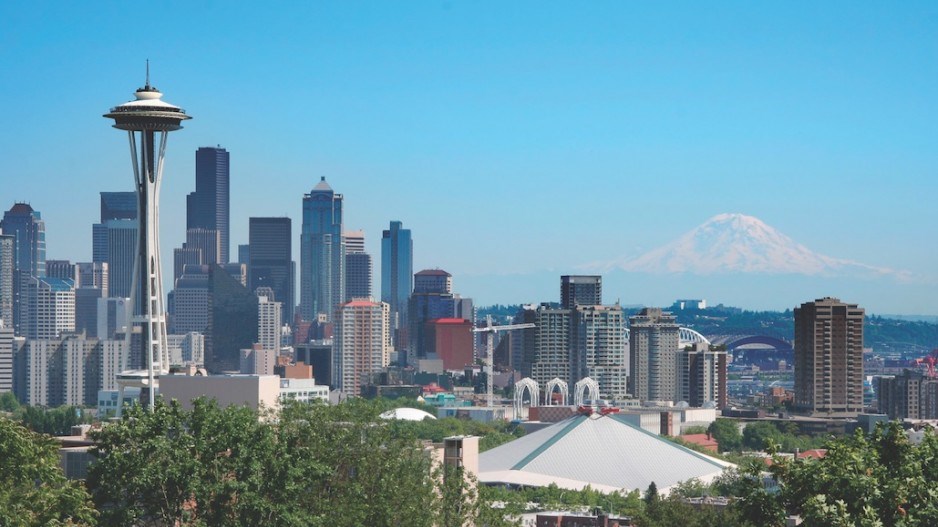In one of his candid conversations with Brian Mulroney, author Peter C. Newman gave the sitting prime minister a piece of advice. Newman urged Mulroney, who was running for a second term in office in 1988, to stop using the words “out here” during campaign stops in Western Canada.
Mulroney’s propensity to start his speeches with “It’s great to be out here in…”, Newman noted, made Western Canadians feel alienated. It also suggested that, once candidates left francophone Quebec or centre-of the-universe Ontario, every other Canadian province was essentially the same.
I have had the opportunity to ask British Columbians and Albertans questions for more than a decade. In recent months, we have discussed the unique allure of Cascadia for British Columbians, and reviewed separatist feelings in Alberta.
A lot has happened since we last checked in. British Columbia has lost its place as the most environmentally friendly province in the country—a distinction now enjoyed by Quebec—and Albertans said goodbye to a New Democratic Party government after giving a massive mandate to the United Conservative Party.
Some things have not changed. In the latest Research Co. survey, two thirds of British Columbians (66%) continue to say they have more in common with the people of Seattle and Portland than with those in Toronto or Montreal. Three-in-four (74%) believe they will stay in the province for the rest of their lives. More than four-in-five (86%) are very proud of British Columbia.
While Albertans have endured jokes about a perceived affection towards the United States for decades, their views on a supposed brotherhood with Americans are nowhere near the Cascadia lovefest that British Columbians espouse. Albertans are evenly divided when asked if they have more in common with Americans than with other Canadians (43% agree and 43% disagree). Men are significantly more likely than women (52% compared with 35%) to feel that the U.S. is “closer” to Alberta than other provinces.
In Alberta, the notion of secession has reached 30% for the first time since I started tracking this question in 2014. The proportion of Albertans who feel they would be “better off” as their own country is higher than what we found in British Columbia this month (17%) and slightly lower than what Quebecers told Research Co. in December 2018 (34%).
Across Alberta, 27% of residents say they consider themselves “Albertans first, and Canadians second.” In British Columbia, only 19% of residents place their province before their country. Quebec, at 48% the last time we checked, is on a completely different league.
When asked about recent governments, the negativity is evident in British Columbia. Two-in-five residents (39%) cannot pick any of the last nine premiers as the best one. The last three reached double digits: John Horgan at 14%, Gordon Campbell at 12% and Christy Clark at 11%.
When British Columbians ponder their worst recent head of government, the level of undecideds falls to 29%. More than a quarter of residents (27%) pick Clark as the worst premier. Campbell is a distant second (11%), followed closely by Horgan (10%).
In Alberta, Ralph Klein wins as “best recent premier” by a large margin (44%), with Rachel Notley finishing second with 17%. This is definitely a situation in which the province’s centre-left voters gravitate towards their only head of government. In any case, conservatives appear to return the favour when asked about the “worst recent premier”. Notley is first with 26%, with Alison Redford a close second at 25%.
More than half of Albertans (51%) picked a woman as the worst recent head of government. There is a gender gap, but it’s not immense, as 47% of women gave their “worst” vote to either Notley (27%) or Redford (20%). In British Columbia, 30% of women selected Clark on this question, compared with 24% for men.
Federal election campaigns in this century have been very different from the ones Mulroney fought “out here” in the 1980s. Every gesture is scrutinized and any gaffe can become a meme. It would be immensely helpful for the federal party leaders who are not based in Western Canada to remember that 59% of British Columbians and 56% of Albertans think their views of are different from the rest of the country. As we outlined last month, the 2019 campaign will not be a “one-size-fits-all.”
Mario Canseco is president of Research Co.
Results are based on an online study conducted from July 23 to July 25, 2019, among 800 adults in British Columbia and 700 adults in Alberta. The data has been statistically weighted according to Canadian census figures for age, gender and region in British Columbia and Alberta. The margin of error—which measures sample variability—is +/- 3.5 percentage points for the British Columbia sample and +/- 3.7 percentage points for the Alberta sample, nineteen times out of twenty.




